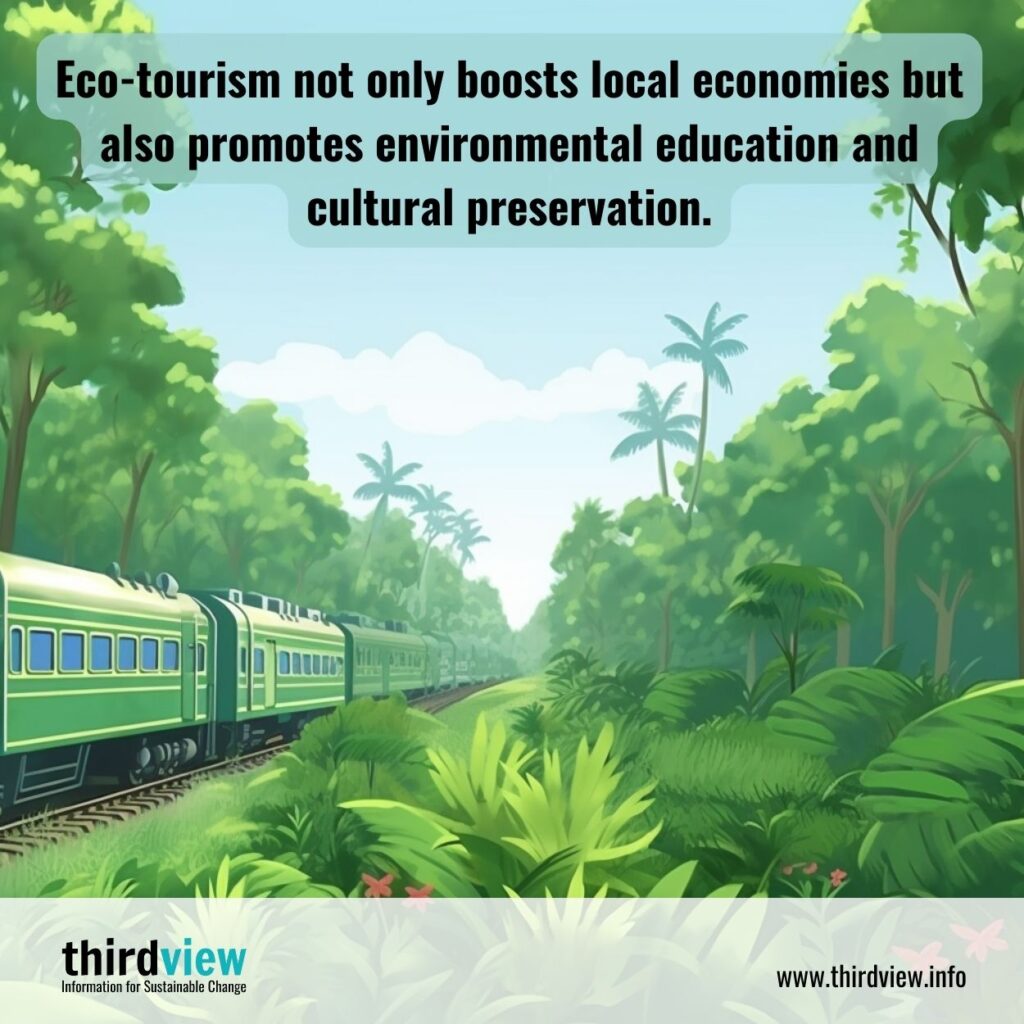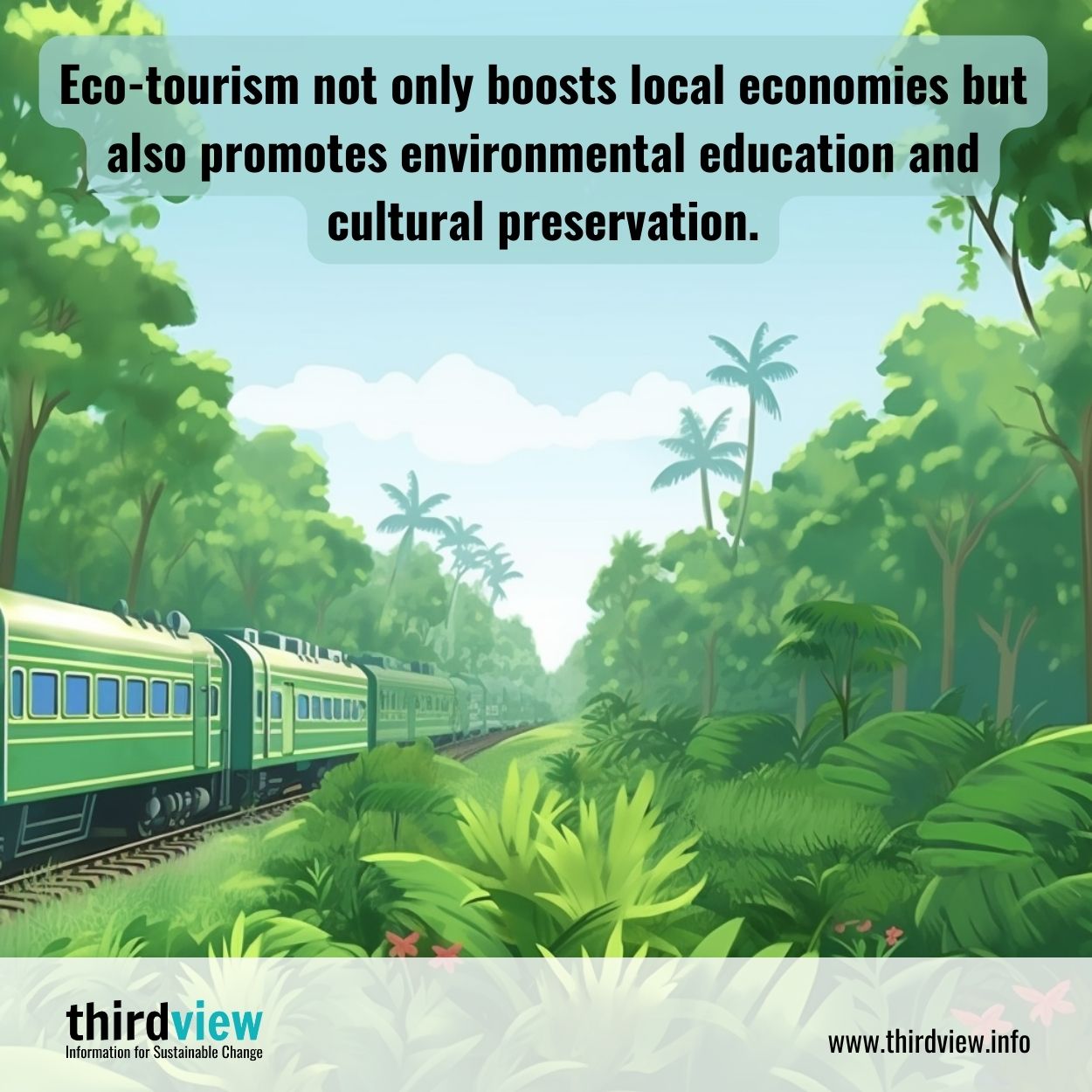With the growing concern over environmental sustainability, it’s time for us to consider changing our attitudes towards natural resource management. A promising solution that’s gaining traction is eco-tourism, which involves responsible travel to ecologically and culturally sensitive areas, with the aim of preserving and promoting awareness of the natural world. Eco-tourism can benefit both the environment and local communities and increase support for conservation. In this blog post, we’ll explore the potential of eco-tourism for natural resource management.
Boosting local economies
Eco-tourism can provide financial benefits for local communities while promoting conservation. Tourists can learn about the local environment and culture while supporting local economies. Local people can also become guides and leaders for educational eco-tours, creating new job opportunities. For example, a community involved in local eco-tourism initiatives can host a farmer’s market to sell locally made goods, increasing local revenues. This provides a positive feedback loop by incentivising people to take care of their natural surroundings and preserving resources for future generations.
Environmental education
Eco-tourism encourages travellers to learn about their surroundings, including plant and animal species, and their ecological importance. Through education and awareness, tourists can understand the impact they have on the environment and how they can make a difference. This fosters a deeper respect and appreciation for natural resources while promoting the preservation of nature.
Conservation of culture
Eco-tourism can also help to celebrate and preserve cultural diversity and traditions. By visiting indigenous and rural communities, tourists can learn about their traditional ways of life, food, art, and language. This also allows the community to maintain their cultural heritage while benefitting economically. Locals’ sense of pride in their culture is deepened, and traditional systems of natural resource management are maintained through eco-tourism, preserving these communities for future generations.
Alternative to non-sustainable tourism
Traditional tourism can generate environmental degradation, such as air pollution and crowding of beaches. In contrast, eco-tourism aims to promote sustainable environmental practices. By reducing the carbon footprint associated with tourism, eco-tourism helps to address the pressing issues that the world faces today. With its focus on responsible consumption and sustainability, eco-tourism is an alternative that supports sustainable economies and resource management.
Eco-tourism presents a promising solution to promote environmental conservation, boost local economies, and preserve cultural diversity and heritage. Through education and awareness of the impact humans have on the environment and respecting natural resources, eco-tourism can create a positive feedback loop that ultimately supports a sustainable future. Eco-tourism is a step in the right direction, helping to address environmental concerns and supporting the conservation of natural resources for future generations.


